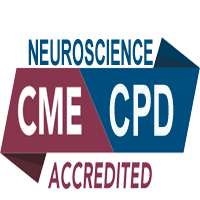
Marina Zueva
Moscow Helmholtz Research Institute of Eye Diseases, Russia
Title: Nonlinear impacts on human brain for recovering of physiological and mental activity and for rehabilitation in extreme ambient conditions
Biography
Biography: Marina Zueva
Abstract
In 2015, we theoretically substantiated the hypothesis that there is the intimate link between the complexity of neural connections, nonlinear dynamics of physiological processes in the brain and the nonlinear characteristics of sensory environmental cues. The impact throughout the person's life of visual and other sensory environmental cues of a complex spatiotemporal structure is necessary for normal maturation, development, and aging of the brain. The theory associates the development and maintenance of healthy structure and activity of the neural networks of the brain and retina with the complexity of visual and other signals of the environment affecting the person, with his life experience of nonlinear stimulation. Hence, the need to maintain healthy fractal dynamics during life, using the natural and the artificial fractal cues when the dynamics of the brain’s function is disordered, or when there is a simplification of environmental stimuli. The use of fractal stimulation and other nonlinear effects can promote recovery of the function of the brain and the retina including neurodegenerative diseases, acting through the reactivation of neuroplasticity. Nonlinear stimulation therapy in medicine must become an essential element of therapeutic strategies for activating neuroplasticity and enhance the effectiveness of the treatment of some pathological conditions: glaucoma, retinitis pigmentosa, Alzheimer's disease, Parkinson's disease, sleep disorders, and amblyopia. Technologies of nonlinear impacts may be applied in various other pathological conditions, which are accompanied by the simplification of at emporal pattern of the brain activity and the emergence of deterministic or tochastic dynamics of fluctuations of various physiological functions. For the recovery after brain injuries and strokes, it is possible to use nonlinear techniques of stimulation therapy in the offices (centers) on rehabilitation and psychological training. Application of non-linear technologies is also prospective in following areas: Gerontology- under normal physiological human aging, the loss of the memory and some other cognitive functions occurs. Nonlinear stimulation techniques may be useful for normalization and long-term preservation of cognitive functions and intelligence of older people, promoting mental longevity; sport- nonlinear stimulation techniques may be helpful for increasing and rapid recovery of mental and physical performance in severe physical or psychological stress in athletes and; work in the extreme environment- nonlinear stimulation techniques may be useful for restoration and enhancement of cognitive function, preservation of critical thinking in the extreme conditions of work and stress situations, including long-term space missions

